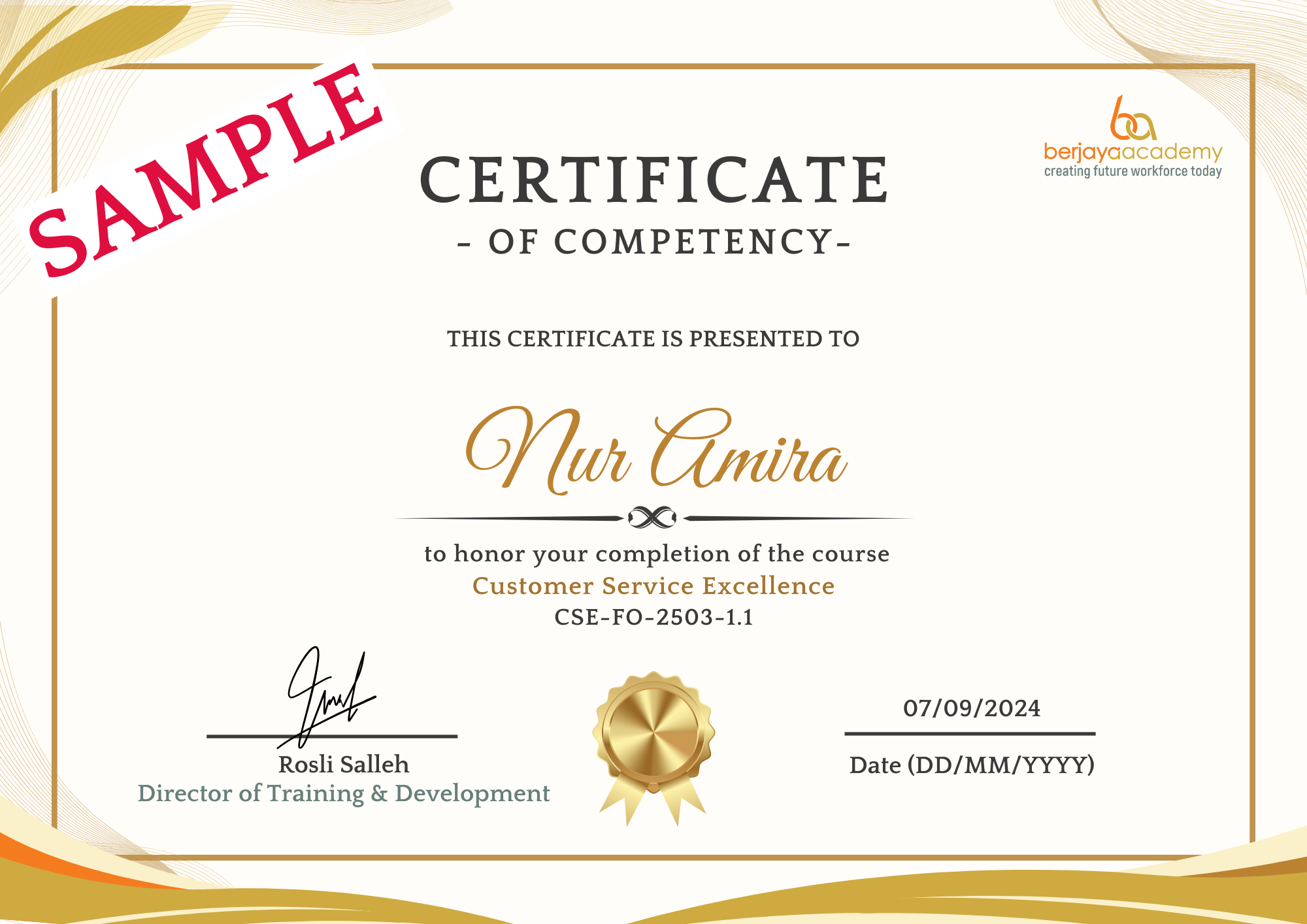
Course Details
Course Title: Handling Difficult Situations
Course Code: HDS-FO-2503-1.1
Course Accreditation
Accreditation Type: Certificate of Competency
Course Duration
Total Course Hours: 8 hours (1 day)
Course Fee
Total Course Fee: S$180/pax
Funding Available (If Applicable):
- Training Industry Professionals in Tourism (TIP-iT)
- NTUC Company Training Committee (CTC) Grant
Summary
Topics:
- Dealing with unruly guests or disputes
- Managing VIPs and high-risk individuals
Safety and Security Integration:
- Escalating safety concerns discreetly to security
- Techniques for de-escalating volatile situations


Learning Objectives and Learning Units for Handling Difficult Situations
Learning Objectives:
By the end of this course, learners will be able to:
- Apply effective strategies for managing unruly guests and resolving disputes professionally.
- Handle interactions with VIPs and high-risk individuals while maintaining service standards.
- Discreetly escalate safety concerns to security personnel when necessary.
- Utilize de-escalation techniques to manage volatile situations and prevent conflicts from escalating.
Learning Units:
Unit 1: Dealing with Unruly Guests or Disputes
- Understanding guest behavior and common causes of disputes.
- Communication strategies for calming upset or aggressive guests.
- Implementing hotel policies while maintaining guest satisfaction.
- Case studies of challenging guest interactions and successful resolutions.
Unit 2: Managing VIPs and High-Risk Individuals
- Identifying and understanding the needs of VIPs and high-profile guests.
- Handling high-risk individuals while maintaining professionalism.
- Managing special requests and expectations of influential guests.
- Privacy, discretion, and security measures for VIP guests.
Unit 3: Safety and Security Integration in Handling Difficult Situations
- Recognizing signs of escalating conflicts or potential threats.
- Proper procedures for discreetly alerting security teams.
- Coordinating with security personnel to ensure guest and staff safety.
- Reporting and documenting incidents for future risk management.
Unit 4: Techniques for De-Escalating Volatile Situations
- Understanding the psychology behind aggressive behavior.
- Verbal and non-verbal techniques for calming tense situations.
- Establishing control while maintaining professionalism.
- Role-playing exercises to practice real-life de-escalation scenarios.
